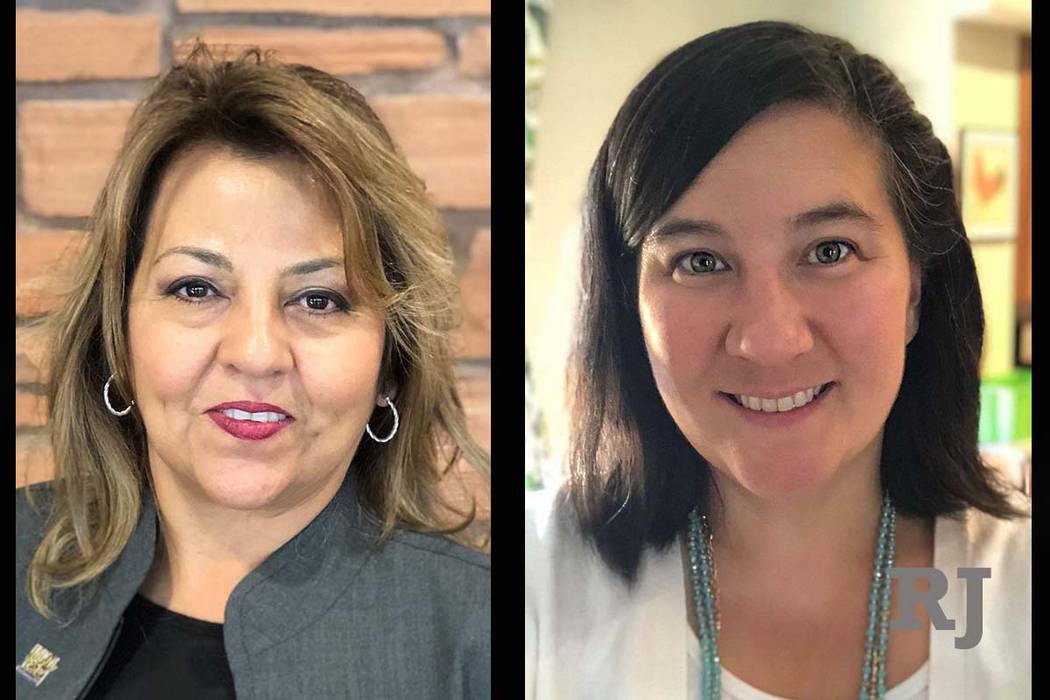Nevada becomes first state with woman-majority Legislature

The Clark County Commission on Tuesday appointed two women to fill vacant seats in the state Assembly, making Nevada the first state in the country with a majority-female Legislature.
Attorney Rochelle Thuy Nguyen and Beatrice Angela Duran, a Culinary Local 226 grievance specialist, both backed by the Assembly’s Democratic caucus, were appointed to fill vacancies in districts 10 and 11, respectively, in Las Vegas.
The appointments raise the number of assemblywomen in the state Legislature to 23 and the total number of female lawmakers to 32, including nine senators in the 63-member body.
“I feel excited. You know, I think women are stepping up,” Duran told the Las Vegas Review-Journal, although she was unaware of the possibility of a female majority beforehand. “I think it gives confidence to more women to put their names in the hat and don’t have doubts.”
Nguyen’s appointment is also historically significant as she becomes the first Asian Pacific Islander American Democrat to join the state Legislature, according to Evan Louie, the chairman of One APIA Nevada, which advocates for Asian and Pacific Islander representation in elected offices.
“There have been so many women and Asian-Americans before me that have worked just so tirelessly,” Nguyen said, “to get to the point where not only are these historically disenfranchised voices heard, but we’re also seen as representatives.”
One APIA Nevada supported both Nguyen, 41, and Nadia Hojjat for the seat after its two preferred candidates, Reuben D’Silva and Ngoc Duy V. Nguyen, were shut out of the Senate District 11 appointment two weeks ago. Dallas Harris, an attorney for the Public Utilities Commission, was picked to replace Attorney General-elect Aaron Ford in that seat.
On Tuesday, Louie implored commissioners to embrace an APIA candidate for the sake of those seeking identifiable representation in office, including his 11-year-old daughter.
“She wants to be a future president someday,” he told the commission. “Yet she’s never seen a female president. She’s never seen an APIA or someone who looks like her in the state Legislature.”
Nguyen worked in the U.S. Department of Justice’s executive office of immigration review. Her father arrived in the U.S. in 1975 as a refugee from Vietnam. She said she has most recently worked with indigent clients in her own private practice and knows firsthand about the need for criminal justice reform.
Duran, 55, pitched her team’s successful efforts to collect more than $10 million in back pay and lost wages for union workers over the past decade, as well as helping “hundreds” of workers get their jobs back.
She vowed to focus on increasing funding for public schools, making health care more affordable and expanding voting rights for those who have been disenfranchised.
“In addition to a diversity of backgrounds and life experiences, both Rochelle and Beatrice bring passion, energy, and knowledge to the State Legislature that will better serve our state and and our constituents,” Assembly Speaker Jason Frierson said in a statement.
Six candidates wanted to represent District 10, while five applied for appointment to District 11. The seats opened when incumbents departed in pursuit of other political offices.
Former District 10 Assemblyman Chris Brooks was appointed this month to the state Senate District 3 seat vacated last month when Tick Segerblom was elected to the commission.
Olivia Diaz, who was re-elected to the Assembly District 11 seat, resigned because she plans to run for Las Vegas City Council. Gregory Hafen was appointed to the Assembly District 36 seat to which Dennis Hof was elected after dying in October.
Of the five legislative appointments made by the commission, three went to women. Four of the seats were held by men after the Nov. 6 election.
‘Image of incumbency’
Including the vacancies filled Tuesday, the Clark County Commission has made five such appointments in two weeks, spurring commissioners worried about the lack of public participation to call for state-level reform in how open seats are handled.
“I’ve come to the point that I think legislatively this process is flawed and needs to be taken a look at. We’ve been doing too many appointments,” outgoing Commissioner Chris Giunchigliani said. “It gives people the image of incumbency, and then new people can never bubble up. It used to be it was mostly women that could never bubble up.”
The sentiment was shared by others. Outgoing Commissioner Susan Brager called decisions by the commission a “pretend vote.” Commissioner Lawrence Weekly called the process “really disheartening.”
“There’s got to be a better system for this,” Gov.-elect Steve Sisolak said, adding that candidates who were not appointed may have had better chances through an election.
As they did two weeks ago, commissioners ultimately stayed consistent in siding with the Democratic caucus’ choices Tuesday, though they sought to emphasize that their dissatisfaction with the process was not tantamount to minimizing the quality of appointees.
Louie joined the call for “the majority of the constituents’ voices” to be heard, even though one of the group’s backed candidates benefited from the appointment process.
Short of calling for special elections to be instituted, Giunchigliani said she hoped that state lawmakers would at least expand residency requirements to ensure candidates live in the district to which they seek appointment for a certain period of time.
Contact Shea Johnson at sjohnson@reviewjournal.com or 702-383-0272. Follow @Shea_LVRJ on Twitter.